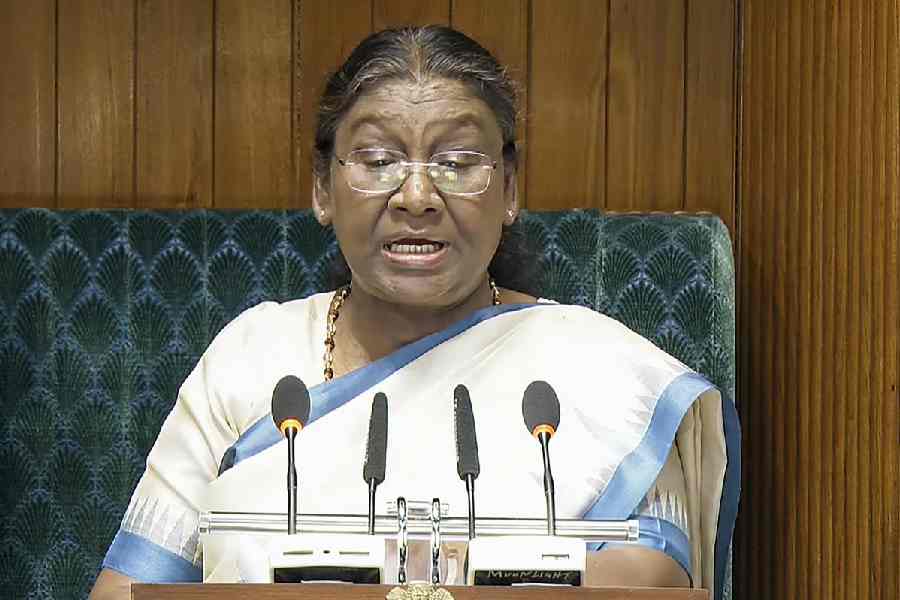The rape and murder of the young doctor in a Calcutta hospital prompted the president of India, Droupadi Murmu, to express her horror, dismay and outrage
at the "perversion" of crimes against women. In an article laying out her response, the president pointed out that in spite of efforts at change, especially after the 2012 rape and murder of the young woman in a Delhi bus, society tends to bury its memories until another such terrible crime occurs. The president feels that the belief that women are inferior in every way leads to their objectification; violence against them becomes easy. While acknowledging that there had been many similar incidents since 2012 — the president did not mention Hathras or Unnao or Kathua — few had attracted the nation’s attention. The importance of the article, however, lay in the stress laid on the need for society’s introspection and for investigation into the ‘pathology’ that makes these crimes possible. Most important was the president’s call to society to ask itself "difficult questions".
By locating the site of potential change within society — not in law, policing and penalties — the president turned the direction of difficult questions inwards. Like charity, they must begin at home with questioning tradition. Not just traditional practices and customs, but embedded beliefs and misogynistic prejudices which lead to objectification. These prejudices also lead to anger against and hatred of women’s freedom, achievement and even just their contentment in everyday life. Uprooting the beliefs and apparent dictates of tradition that devalue women would be a most difficult task in Indian society. Envy and the sense of powerlessness spring from these roots too, and lead to violence as much as the exercise of power as in, say, Bhanwari Devi’s case. There are also other issues. Inadequate education and exposure to society, for instance, accompanied by access to social media and the internet create dangerously mistaken ideas of enjoyment and entitlement.
It is the perception of women that must be addressed if anything is to change. The difficult questions may point to different problems in each case, yet all the problems, even if not reducible to a single source, are certainly intricately entangled; they converge each time with some obvious pathology on the surface. To begin simply, it can be asked what a growing boy experiences at home. Favour for himself and domestic violence against his mother? If not obviously, but through devaluation in words and deeds in which the older women join in too? Patriarchy is insidious; the problem here is compliance. So to teach a boy that women are equal, adults must become conscious of their prejudices too. Schools should encourage difficult questions as well. It has also to be asked whether Indian society is teaching children the difference between healthy sex and violence. As long as the subject of sex is suppressed and prejudices go unchallenged, little will change. The president’s ‘difficult questions’ would touch upon these basic blindnesses.











